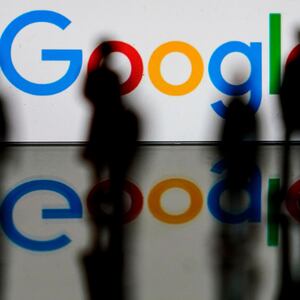As the 2019 novel coronavirus spreads further and further, events with global audiences from Coachella to the entire NBA season are being canceled or postponed for fear of exposure. Technology giants like Google are recommending all their employees work from home, and travel is being restricted in new ways seemingly by the minute.
But coders, the foot soldiers of America’s sharp turn toward tech as the solution to life’s ills in recent years, seem to believe the epidemic can be solved in a few caffeine-fueled hours.
Austin, Texas played host to a three-day hackathon, “Hack Coronavirus,” this past weekend, even as the city’s economy-driving SXSW festival had been canceled. Friday’s “Hack Coronavirus: Ideation” featured a town hall with the city’s mayor, a state representative, and experts from the Austin public health department. Attendees were also slated to “hear lightning pitches with ideas from the community,” and “demo your technology solution.”
Urgent questions, according to the event description, included, “How can we ‘replace the handshake?”
Roughly a dozen people gathered Saturday and Sunday for “Hack Coronavirus: Hackathon” to “hack detection solutions to evaluate the risk of potential exposure to the coronavirus,” according to organizer Jessica Lowry, an experience director with the tech consultancy Mutual Mobile, which hosted the event. Their big product idea was a webpage with easy-to-use cards that would disseminate verified information and direct individuals, especially the homeless, to places they could donate or pick up necessities, Lowry told The Daily Beast.
Homeless populations are at unique risk to the coronavirus, and some experts have suggested a majority of Americans will be exposed to the virus—even if they don’t actually get infected.
But the Austin hackathon became a bit quixotic after SXSW’s cancelation. One judge, Adam Zeiner, an interaction designer with the Design Institute of Health, said the event “didn’t really come to fruition” because “attendance was sparse.”
“I was very hesitant to participate in the event in any capacity and did so as a favor,” he told The Daily Beast, adding, “I don't want to discuss any further.”
An in-person gathering may not be the most obvious way to address such a contagious disease, but Lowry said low turnout helped alleviate that risk.
“If we had seen a hundred people registering, we would have tried to change the format to make it remote or distributed, but because only a handful of people registered, it didn’t seem like we’d have a large crowd,” she explained.
<p><em><strong>Do you know something about tech companies or the 2019 novel coronavirus that we should? Contact this reporter at Blake.Mongomery@TheDailyBeast.com, or securely by email at blake.montgomery@protonmail.com or via Signal at 650.731.5423 from a non-work device.</em></strong></p>
The wifi password was “washyourhands,” an extra precaution, Lowry added, just in case. Hand sanitizer was available, too.
The events were free, but organizers requested in-kind donations of catering in support of their efforts. They also called on health experts and officials to join them: “We hope to see members of the local health department and academic institutions donate their time to help inform our teams of the critical infrastructure information to design informed solutions.”
Lowry suggested public health agencies were not interested in the hackathon, perhaps because employees were, well, busy.
“I reached out to every public health unit I could find an email for,” she said. “We had one reply from a federal branch saying they were inundated and they couldn’t come. That was disappointing that they couldn’t provide an hour of their time or a soundbite of info.”
It’s worth noting the deadly and extremely contagious disease has threatened to overwhelm hospitals and public health departments at the state, local, and federal level around the country. An official from the Austin public health department did speak on a panel at the Friday Hack Coronavirus event, but none attended the weekend event, according to agency spokeswoman Jen Samp.
“Government services don’t usually respond unless it’s an emergency, so I guess they didn’t see us as top of their priority list,” Lowry said. “I’m following back up with the city and explained to them what we made and haven’t heard back.”
She had hoped the government would pay more attention, despite the crisis.
“Nobody has acknowledged our work yet. They haven’t used it or shared it yet,” Lowry said. “There’s a bias that we’ll create more chaos, but if they dug in, they would learn that we are very competent. It’s possible for us to do the right things, they just need to engage with us.”
Joshua Baer, whose company Capitol Factory hosted the Friday event, did not respond to a request for comment. Eventbrite, which hosted the invitations to both Austin events, did not reply to questions about whether it was providing guidance on coronavirus-era meet-ups.
Techies across the world have been signing up for and participating in coronavirus-themed hackathons for some time. The ARC Innovation Center, an Israeli startup accelerator within the Sheba Medical Center in Tel Aviv, hosted one February 27, “Hack COVID-19.” The Thomas Edison Smart Energy school in New Jersey previously hosted a hackathon for students grade six through 12. The theme: “epidemics/coronavirus,” and the grand prize: $100.
A Seattle teenager may have beat them to the punch, though. According to the Times of Israel, Avi Schiffman, 17, created a site in late December, just as the crisis was emerging, that scrapes reliable sources of public health information across the world and updates the number of cases every minute, ncov2019.live. To date, 12 million people have reportedly visited it.
As government warnings and prohibitions on gathering ramp up, however, techno-utopians may find it increasingly difficult to do their thing.
In contrast to the Austinites, some more established hack-inclined outfits are calling off their events over novel coronavirus concerns. Rental car company Hertz canceled its annual hackathon, a 24-hour coding jamboree slated for April 4 and 5. Major League Hacking, which hosts hackathons around the country, has postponed its two closest upcoming events.
Austin isn’t alone in hosting such events for techies, though. The University of California Berkeley’s Center for Emerging and Neglected Diseases is hosting the “2020 Coronavirus Diagnostic Hackathon” on March 25. On Monday, not long after the event became the butt of jokes on Twitter, the research group decided to host the event online to decrease public health risk, according to Isabelle Charles, a program manager at the center. Roughly 50 people have applied to participate, she said, and they expected as many as 100 more.
The university has canceled in-person classes until at least March 29, the end of spring break.
The goal of the virtual meetup was to bring together scientists who were unlikely to meet otherwise, Charles added. She was aware of the irony of hosting an in-person coronavirus hack when it’s recommended people stay away from one another.
“The CDC’s biggest guidance on mitigating the spread is to not gather, so we felt we should respect what they’re saying,” Charles said. “We originally were going to do it in person, but we figured that because of the public health risk we’d better not.”
Though a hackathon doesn’t tend to produce immediately actionable solutions, she added, the urgency of the coronavirus outbreak and the center’s connection to the public health world have produced more readily accessible funding sources.
“With this pandemic, there’s a catalyzation of research. Things can be brought to fruition much quicker than they might be otherwise because so little research has been done and there’s room for many more diagnostic tools than what’s on the market,” she said.
At least one hackathon has contributed to a partnership with an official public health department. The Magpie Research Group at Simon Frasier University (SFU) in British Columbia, Canada, hosted a hackathon February 18 and 19, the “EpiCorona Hack.” Undergraduate and graduate students attended, as did university researchers. One of their main outputs was a paper modeling transmission of the virus before symptoms appeared, one they’ve since submitted to scientific journals, according to SFU math professor and infectious disease researcher Caroline Colijn. The teams arrived at their conclusions by trying to answer questions an employee of the local public health department had posed. Colijn has stayed in touch with the agency and continues to work with it on modeling the spread of the virus, building on the work of the hackathon, she said.
Colijn was cognizant of the potential drawbacks of a large gathering, but mid-February was a much different time in the history of the coronavirus, she noted.
“I wouldn’t plan an event like this now or next week, but on February 18th, there were no cases in British Columbia,” she said. “No one was talking about canceling gathering. We weren’t flying people in from Hubei province to go to this hackathon.”







